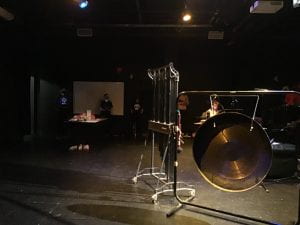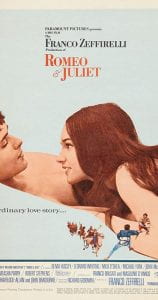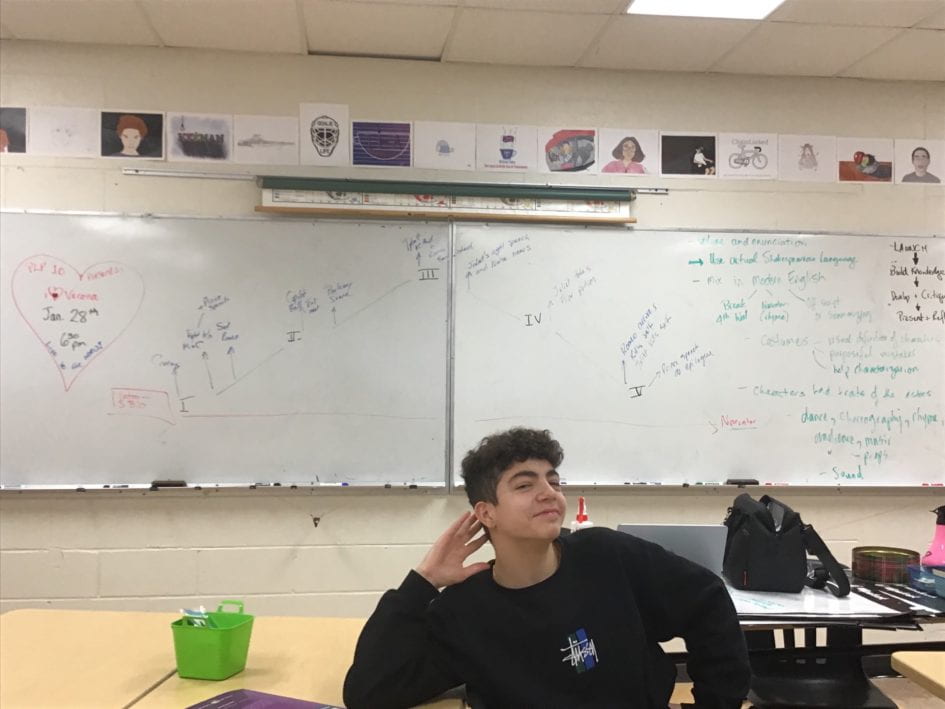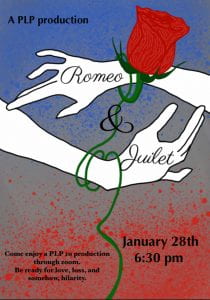Romeo and Juliet? Uh you mean, like, the love story? Where they…kiss? Ew. Nope, nope, nope. Logging off right now.
 My first thoughts about being introduced to the play of Romeo and Juliet, are those words above. The only part I was reluctantly fine with was the part where we got to watch Leo DiCaprio as Romeo.
My first thoughts about being introduced to the play of Romeo and Juliet, are those words above. The only part I was reluctantly fine with was the part where we got to watch Leo DiCaprio as Romeo.
Now you, being the expert blog reader and inspector (I’m sure), probably know what I’m already going to say.
“So I hated this new project at first, but then I actually did work, and it turns out I learned a lot and loved it! Onto the next project. Oh yeah and the competencies, something about those are important or whatever. Anyways…”
Well, you’re right! Ahhh, got ya there. No no no. When I say I was protesting to the concept of Romeo and Juliet, that doesn’t mean I was against the project idea. In fact it was the complete opposite. I thought putting on a live radio show was actually really brilliant. I mean, it made sense. In grade 8, it was all about the picture image. In grade 9, it was all about the moving image. So it only makes sense that there was something surrounding the sound image in grade 10. Well a live radio show is honestly the epitome of a good assessment of the sound image. So naturally, I admit it, yes, fine, I was kinda sorta excited, whatever. Don’t tell anyone I was actually excited to do a project, I will be bullied for it.  Anywho, what I wasn’t stoked for was the fact that the radio show revolved around the play (aka tragedy) of Romeo and Juliet. Now what I first thought of was “ew ew ew, kissing, kissing, kissing, love, love, love”, which is fair I mean I am 15 years old and definitely don’t want to act out young love with my fellow classmates. You got to admit, it can be kind of weird to think about acting out love scenes with someone you’ve known for 2 years and have gone on field studies with, or worse, watch two of your classmates who you’ve known for 2 years and have gone on field studies with, act out love scenes.
Anywho, what I wasn’t stoked for was the fact that the radio show revolved around the play (aka tragedy) of Romeo and Juliet. Now what I first thought of was “ew ew ew, kissing, kissing, kissing, love, love, love”, which is fair I mean I am 15 years old and definitely don’t want to act out young love with my fellow classmates. You got to admit, it can be kind of weird to think about acting out love scenes with someone you’ve known for 2 years and have gone on field studies with, or worse, watch two of your classmates who you’ve known for 2 years and have gone on field studies with, act out love scenes.
Who was I to tell anyone that I kind of felt sceptical about doing Romeo and Juliet as a radio show, exactly, no one. So I decided to maybe give it a shot? We dove in to the analytics of the play, dissecting it to its fullest. Who the characters were, what the full story line was, what Shakespeare really meant when he wrote this line, and what the dual meanings were, were they on purpose? Most importantly, how to make a live audio story that makes an audience appreciate the relevance of Shakespeare? Back at the start of quarter 1, when we wrote a piece on our names, I used the line “A rose by any other name would smell as sweet”. I has heard it somewhere, but I didn’t know where it was actually from, and now I find out that its actually from Romeo and Juliet. Crazy how this world works. Surprisingly, this actually tested a competency called “Taking Historical Perspectives” which is actually one of the most important competencies we have worked with, throughout the year.
As we were learning how to analyze the play itself , we started to watch 2 different movies which were modern day adaptations of Romeo and Juliet. By the way, I talked more about adaptations in my latest podcast episode, which you can listen to if you click the bar right below!
This tried our “analyzing text” competency, as we watched these 2 movies.
Have I expressed an understanding of how texts use literary devices, context, and language to enhance English 10 both meaning and impact the reader?
I can express an understanding of how a text uses literary devices to make meaning.
I can express an understanding of the role of contexts, values, and perspectives in texts and how language is used to construct personal, social, and cultural identity.
 They were considered modern for their time era, one released in 1968, and the other in 1996. They also had very different directions, and, to me, it almost felt like I was watching 2 un alike movies, which was weird considering they root from the same story. Although they had their many differences, there were some aspects that made them similar, for example, both had “early era English”, meaning the actors spoke in the same way Shakespeare wrote the play. I do have to admit it threw me off to see Leo DiCaprio, in the 1996 movie, speak like that. I think that was mainly because he is an actor that we still see in the press today, or that we as a society know of well.
They were considered modern for their time era, one released in 1968, and the other in 1996. They also had very different directions, and, to me, it almost felt like I was watching 2 un alike movies, which was weird considering they root from the same story. Although they had their many differences, there were some aspects that made them similar, for example, both had “early era English”, meaning the actors spoke in the same way Shakespeare wrote the play. I do have to admit it threw me off to see Leo DiCaprio, in the 1996 movie, speak like that. I think that was mainly because he is an actor that we still see in the press today, or that we as a society know of well.
 The 1996 version also had a very modern setting and concept, modern to this time compared to the 1968 version, so to hear them speak in “early era English” sort-of threw me off. I can see why Baz Lurhmann, the director of the 1996 Romeo and Juliet, chose to do that, but then again I could see the cons for that decision as well.
The 1996 version also had a very modern setting and concept, modern to this time compared to the 1968 version, so to hear them speak in “early era English” sort-of threw me off. I can see why Baz Lurhmann, the director of the 1996 Romeo and Juliet, chose to do that, but then again I could see the cons for that decision as well.
Once we knew the play like the backs of our hands, it was time to put it on, as a live radio show. Up until this point, I had been sort of cruising through, meaning I was enjoying and just kind of accepting and absorbing the knowledge of the play, and the history of it, that part was really enjoyable. But planning and putting on the show was what really tested us, myself at least. I wasn’t about to go get all down about it, because I knew that it would just complicate the process, and I’ve done that in the past before. Getting disappointed or down about something that isn’t going your way is a trait that I’ve expressed in the past that really just makes the process of planning and even the celebration of the finished product harder for me to enjoy. In blog posts I usually say that I always want to do better at this, but through this project I think it was time for me to actually give it a shot.
This definitely challenged my abilities to perform as an “innovative designer”, which was our last assessed competency.
Being an innovative designer doesn’t just mean bringing creative ideas to the table, to me it means being reasonable and knowing your limits. Of course all of us want to think extravagant and be able to do whatever we want, then our creativity would be off the charts. I think part of innovative designer is about being rational, and execution. You always need to take into consideration when brainstorming, and thats what I wanted to try out during our team discussions. Being on the sound team, means really bringing the fun and life to the performance ESPECIALLY if its a radio show. Sound plays a huge part for this setting, and we all knew it. We settled on the idea of cooking bacon 
live, to create the effect of rain. Honestly, it was funny at first and we were all on board, including our teacher. But as the timeline started to play out, and we were forced to figure out how to execute this, it suddenly became a very inconvenient obstacle. We had to get gas, heat, actual bacon, and learn how to maneuver through the play with it. Not to mention there were many hazards, including fire, burning, and uncontrollable heat. As innovative designers, my team and I, decided to scratch that idea and replaced it with some fake leaves, and a rain stick. It was the less optimal choice, considering the bacon would’ve been way way cooler, but it was the choice that worked best for our environment and an adaptation we had to make.
So what about the actual performance? Well, experience it for yourself. There are some pictures I took, but the actual video and audio of the live radio show is yet to be released. When it is, this post will be updated with it, so make sure to check in and stay tuned. In the meantime take a listen to my podcast, Turn it Up, which has new episodes, and more coming soon!
Click here to access Turn it Up!
Sound Team: Brenton, Noah, Anders, Angelo, Rhiann and myself!



February 4, 2021 at 7:06 pm
Cool
I’ll make sure to check out your podcast
February 5, 2021 at 5:16 am
Hey! Thanks for checking my podcast out! Which episodes did you listen to and what’d you think?
February 8, 2021 at 12:58 am
Hello there!
I found your blog post to be absolutely hilarious. I get the entire “watching people I’ve known for two years act out a love scene” thing. I’ll be sure to stick around for the video of the show!
Ariane
February 8, 2021 at 8:46 pm
Hey hey!!
Thank you so much for reading! I hope you enjoyed haha.
And yes totally weird to watch the whole love scene thing with people you are close with right!?
The video should hopefully be up soon, so yes yes yes please stay tuned!
Thanks Ariane!!
February 8, 2021 at 8:41 pm
This project seems really interesting!